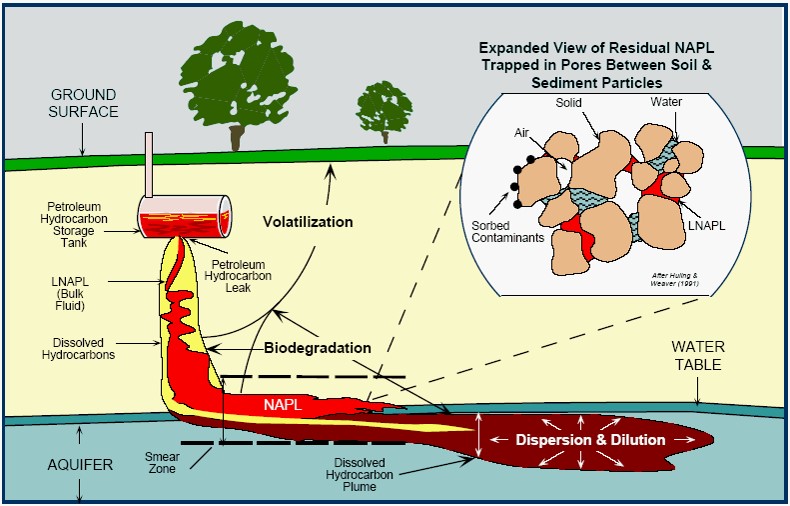Prereq: GEOL 473 or intructors permission
The objective of the course is to develop a basic understanding of the physical, chemical, and biological processes that govern the transport and fate of chemical contaminants in groundwater. Fate topics will be restricted to organic compounds or non-aqueous phase liquids (NAPLs), and will include factors such as the partitioning processes that govern the mass transfer between the air, liquid, NAPLs, and solid grain phases. Bacteria metabolic processes and the environmental conditions that control the destruction of NAPLs will be examined. Remediation technologies will be introduced as a means to review the theoretical factors that control the fate and transport of chemicals in groundwater. Area 6, a groundwater contaminated Superfund site on the Naval Air Station on Whidbey Island, will be examined as a case study.
Course Outcomes - upon completion of this course students will understand:
- the sources of groundwater contamination
- the physical transport processes of contaminants in groundwater
- the mass transfer processes that influence the transport of non-aqueous phase liquids (NAPLs) in groundwater
- fate processes, specifically the biodegradation of NAPLs in groundwater
- common remediation technologies used to clean up contaminated aquifers

